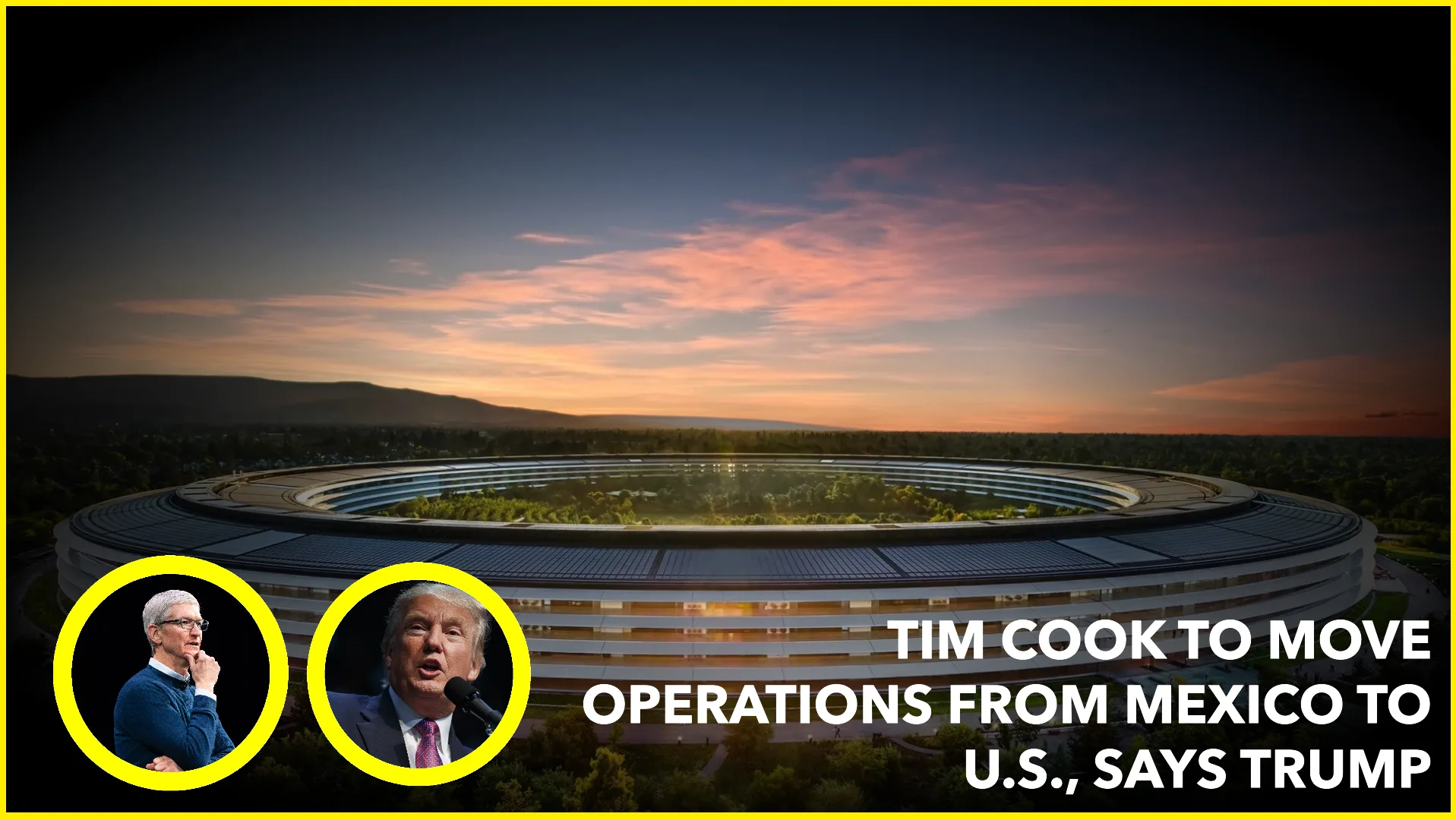Washington, D.C. — During a recent White House gathering, former U.S. President Donald Trump announced that Apple CEO Tim Cook plans to shift the company’s manufacturing operations from Mexico to the United States. This move, according to Trump, aims to avoid tariffs on imported goods while bolstering domestic investment.
Trump emphasized that Cook expressed a commitment to bringing more production back to American soil, aligning with efforts to support the nation’s economy. The statement comes as part of ongoing discussions about reducing reliance on foreign manufacturing and creating jobs within the United States.
“Tim Cook has assured me that Apple will relocate its manufacturing operations from Mexico to the United States,” Trump stated during the event. “This decision not only helps Apple avoid tariffs but also contributes to the growth of American manufacturing.”
The announcement has sparked widespread interest, particularly due to Apple’s reliance on global supply chains. While many of the company’s products are assembled by Foxconn, a major electronics manufacturer with facilities worldwide, including in Mexico, the shift toward U.S.-based production could signal a significant change in the tech giant’s operations.
Analysts note that Apple’s decision may stem from the ongoing trade tensions between the United States and other countries, which have led to increased tariffs on imported goods. By relocating manufacturing to the U.S., Apple could reduce costs associated with these tariffs while also aligning with government incentives for domestic production.
However, industry experts caution that such a transition may face challenges. Manufacturing electronics in the United States often involves higher labor costs compared to countries like Mexico or China. Additionally, the availability of skilled labor and supply chain infrastructure may require substantial investment to match the efficiency of overseas facilities.
Despite these potential hurdles, supporters of the move highlight its benefits for the American economy. Increased manufacturing within the United States could lead to job creation and stimulate local economies, particularly in regions seeking to revitalize their industrial sectors.
Apple has not yet released an official statement regarding the relocation, and details about the timeline and specific products involved remain unclear. Nonetheless, the company has previously demonstrated interest in expanding its U.S. presence. In recent years, Apple has invested in American facilities, including a campus in Austin, Texas, and advanced manufacturing initiatives in multiple states.
Economists suggest that if Apple successfully transitions a portion of its manufacturing to the United States, it could encourage other tech companies to follow suit. This shift could reduce dependence on foreign production and contribute to a more resilient domestic supply chain, especially for critical electronic components.
While questions remain about the scale and feasibility of Apple’s relocation, the announcement marks a potential turning point in the company’s global manufacturing strategy. As trade policies continue to evolve, Apple’s move to prioritize U.S.-based production could have lasting implications for both the technology sector and the broader economy.
As further details emerge, industry observers will closely monitor Apple’s next steps and their impact on the company’s supply chain, product pricing, and long-term growth. For now, Trump’s statement has reignited discussions about the future of manufacturing in America and the role of major corporations in supporting domestic industries.










